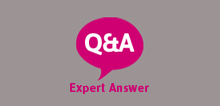How much National Insurance do I pay if I’m self-employed?
I’m employed full time but I’m considering being self-employed part time as well. I pay National Insurance 1 in my employed wages but want to opt out of the NI 2 for my self employed job. Would this affect my entitlements to benefits from the NI? And how much national insurance do I pay when self-employed?
How to pay National Insurance when self employed
You say you currently pay a class 1 contribution from your wages working full time. That’s a good start, but if you want to move towards being self-employed you’ll also need to register with HM Revenue and Customs (HMRC) here. That way you can pay National Insurance relating to your self-employment online.
Class 2 and class 4 National Insurance contributions for self employed people
How much National Insurance you pay when you’re self employed depends on a few things.
If you earn under £6,515 from your self employment you won’t need to pay anything towards National Insurance. However, self-employed people earning profits of £6,515 or more must pay class 2 National Insurance contributions (NIC). If you’re earning over £9,569 from self-employment you’ll also need to pay class 4 National Insurance contributions.
Both class 2 and class 4 NIC can be paid online via a self-assessment tax return. Unfortunately, your current situation means that you’ll have to pay both class 1 NIC (in this case your income tax and national insurance get taken out of your employed salary) as well as at least class 2 NIC, although class 4 might be added depending on your self-employed income. You can find out more about self-assessment here.
Self employment and benefits
You’ll need to make sure you’ve paid all the National Insurance contributions you owe to protect your entitlement to benefits. This means that you can’t opt out of paying class 2. You can check your National Insurance record here to double check that you’re still entitled to benefits. If things aren’t up to scratch then you can always make voluntary contributions to cover any payments you’ve missed.
How much do I pay when self employed?
Your self employment National Insurance contributions are determined by the amount you earn from said self employment. So, Class 2 national insurance payments are fixed at £3.05 per week while Class 4 contributions are billed at 9% of profits between £9,568 and £50,270. And Class 4 contributions for profits above £50,270 are 2%.
There are some exemptions but these only apply in very limited circumstances. Sadly, even if you do find out you’re exempt from NIC, it doesn’t mean your tax bill will be blank. You’ll still have to pay capital gains tax, and/or council tax at the end of the tax year, a.k.a. April 2022. If it makes you feel any better, a lot of these taxes go towards funding things like health and social care in the country.
For details of whether you would be exempt you should refer to this article on the government’s website.
Further information on NICs
Here are some extra resources:
- To get further information, check out our article on National Insurance contributions here. You could also make a post on our discussion boards or contact HMRC with any specific questions. Plus, you might also find this HMRC tax calculator useful.
- The Citizen’s Advice Bureau (CAB) has trained advisors who can give you information on your eligibility for benefits and can take into account your individual circumstances. They should also be able to advise you on whether your NI Contributions could affect any entitlements you may have to benefits.
- You may also like to check out our article on becoming self-employed here, and the rest of our self employment resources here.
- Hopefully you will find this information helpful but please do not hesitate to contact us if you have any further queries.
Answered by on 20-May-2013
Next Steps
- Chat about this subject on our Discussion Boards.
No featured article











